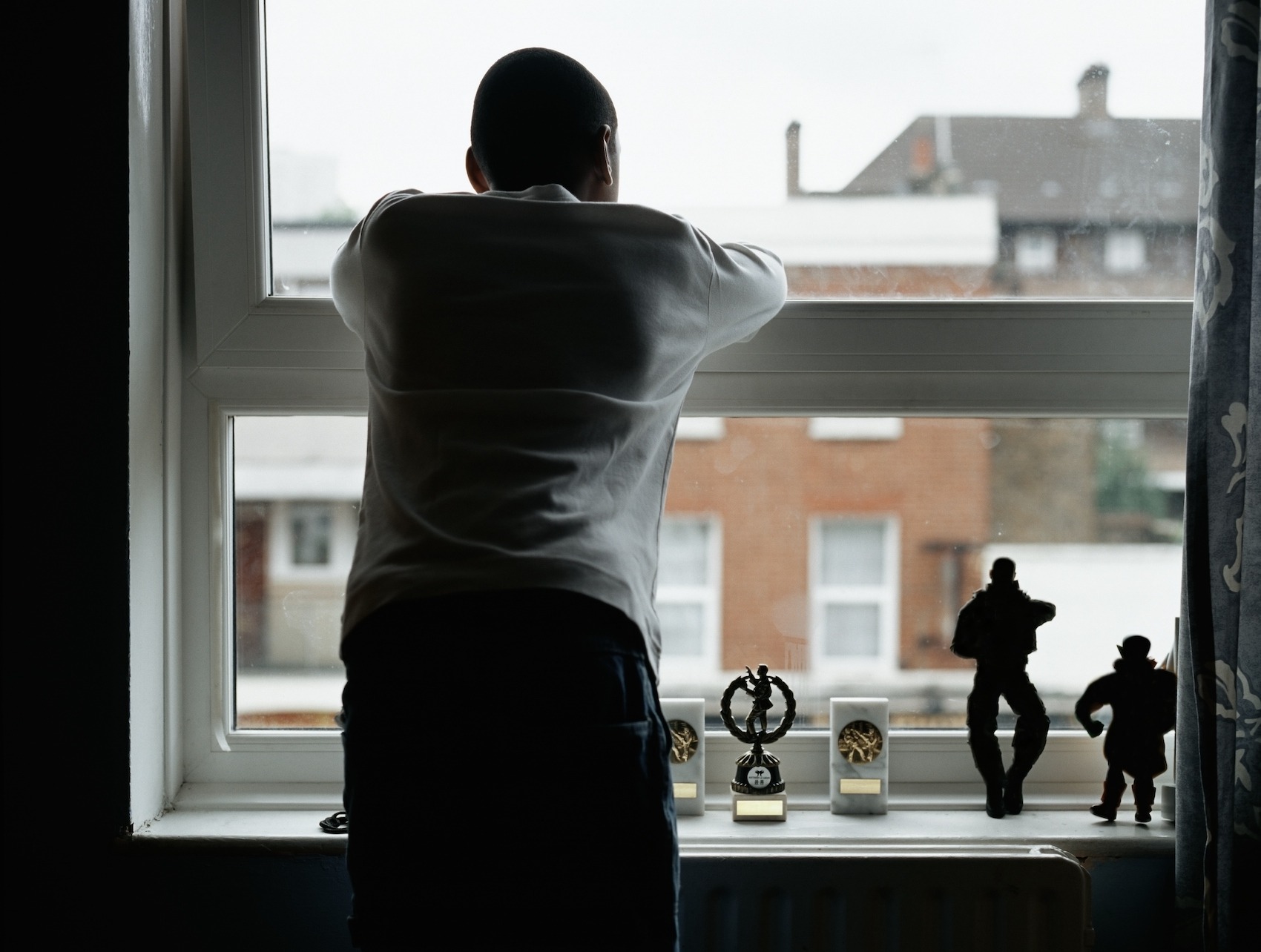Millions of Children Lose Their Parents To Incarceration. That Doesn’t Have To Happen.
Prosecutors can help implement policies that are better for families and communities.

Almost 30 years ago, William Underwood was convicted in a drug conspiracy that left him sentenced to life without parole. But it wasn’t just a life sentence for him—it has been a life sentence for his children as well. Underwood, now 65, tried his best to parent from behind bars—30 years of cards, phone calls, and visits brought some solace to both him and his family. For his children, however, the heartache of separation is intensified by the fact that he’s sentenced to die in prison.
Though family separation policies at the border have rightly provoked outrage, family separation is nothing new in the United States. From slavery, to mass incarceration, to the excessive removal of children into foster care, our country has a long history of dividing parents from their children, thereby causing irreparable harm.
Today, the number of children separated from their parents totals in the millions. One out of every 28 children has a parent who is incarcerated, and 1 in 4 Black children will have a father who has been incarcerated by the time they turn 14. That’s millions of children not only experiencing the pain and stigma of having a parent behind bars, but also the myriad adverse consequences that come along with it, including financial hardship, health and educational challenges, and often permanent separation from their parents as a result of incarceration.
These troubling outcomes—and our failure to address them—underscore our misplaced presumption that incarceration can solve social ills and the fundamental lack of appreciation for the multitude of harms that accompany it.
Fortunately, as greater attention is being drawn to mass incarceration, more studies are emerging that quantify its damage, and evidence is growing that supports moving away from the harsh punitive system of the “tough on crime” era. But this is not just an academic analysis. The impact of incarceration is something children live and see every day—and that we have seen through our own experience and work as criminal justice reformers.
Historically, our justice system has been viewed as simplistically binary: Good people are victimized by bad people and harsh punishment of the latter makes us all safer. This view posits that a system that locks people away prevents harm to others. But the reality is that every time we incarcerate someone, new victims are created who are rarely acknowledged: the children, families, and loved ones of those incarcerated.
For children, in particular, having a parent who is incarcerated threatens their emotional, educational, and economic well-being. Incarceration can translate into destabilizing financial hardship for families as households lose both income and child care. Given the critical role parents play in their childrens’ development, parental incarceration can also mean lower performance in school and has been shown to have negative physical and mental health impacts on children. And because of the racial and economic disparities in incarceration, the hardships of parental incarceration compound existing inequities.
Not only does excessive incarceration harm children—it fails to make us safer.
We lock people in dehumanizing jails and prisons where violence is too common and for far longer sentences than other Western democracies would consider, prioritizing punishment over rehabilitation. While sentences in most European countries are rarely longer than 20 years even for the most serious crimes, more than 50,000 people in the United States are serving life without parole sentences, whether or not they continue to pose a danger to the community. Indeed, research shows that extreme sentences do little to deter crime and can actually be counterproductive.
Correctional practices often erode prisoners’ ability to maintain the stabilizing anchors of family connections. By making phone calls prohibitively expensive and incarcerating people in distant facilities that make consistent visitation challenging, we strip away support systems and the very connections that reduce the likelihood that someone will commit a crime in the future. And this is all done in the name of public safety.
As the front door to the justice system, prosecutors can play an important role in advancing policies that are better for families and for communities. These approaches include creating processes in district attorneys’ offices to proactively identify and remedy past excessive sentences; recommending noncustodial and community-based sentences for parents whenever possible; and working with families to determine the full impact of incarceration and ensure those concerns are considered at sentencing. Prosecutors can also be advocates for supports that help children navigate the system and address trauma, and they can promote policies that enable in-person contact visits and allow for meaningful engagement that keep families emotionally connected even when they cannot be physically together.
Prosecutors like Boston District Attorney Rachael Rollins and Brooklyn District Attorney Eric Gonzalez have already demonstrated the simplest way that prosecutors can keep families together—by making diversion the default and refusing to prosecute low-level offenses related to poverty that have little impact on public safety. Gonzalez and others, including Philadelphia District Attorney Larry Krasner and Seattle District Attorney Dan Satterberg, are taking a second look at past extreme sentences and providing a pathway for individuals to return to their families and communities.
For the first time in decades, we have a real opportunity to create fundamental change that centers human dignity instead of perpetuating a system that creates new victims in the name of justice. With a growing movement of advocates, including people with experience in the justice system, working alongside elected prosecutors committed to smart and compassionate justice reforms, we can create a justice system that preserves family connections and promotes safety for all.
Ebony Underwood is the founder and CEO of We Got Us Now, national movement built by, led by and about children and young adults impacted by parental incarceration. She is also a longtime advocate for the release of her father, William Underwood. Miriam Aroni Krinsky is a former federal prosecutor and executive director of Fair and Just Prosecution
